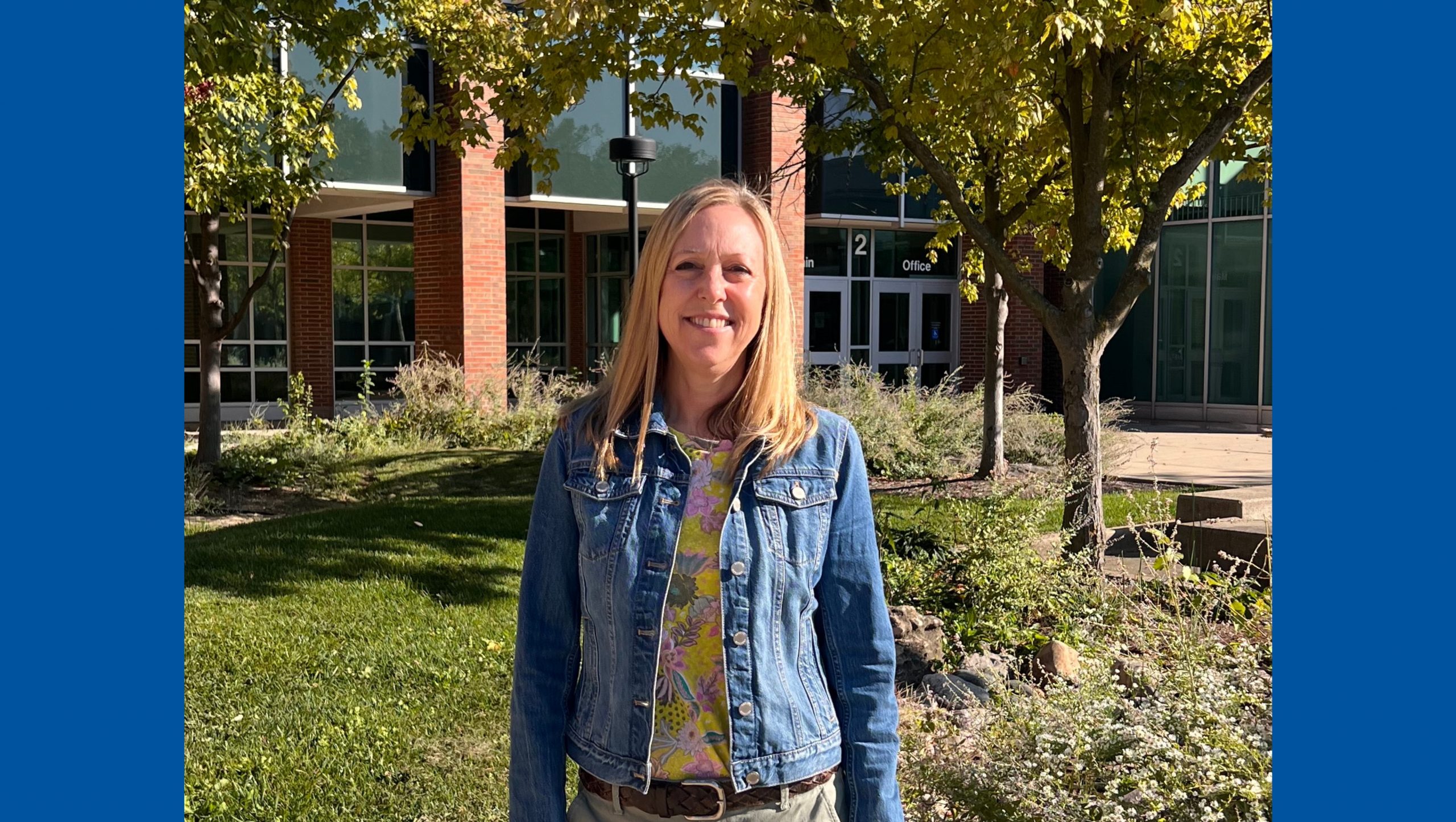Michelle Foutz, MAEEE Class of 2003, teaches AP Macroeconomics at Carmel (Ind.) High School in Carmel Clay Schools, where her students consistently excel in the National Economics Challenge Competition. Since first entering the competition in 2002, Foutz has guided her teams to remarkable success – including a 1st place national win in 2023 and a 4th place finish in 2024 in the highly competitive Adam Smith division. Drawing inspiration from her experiences in the Master of Arts in Economics and Entrepreneurship for Educators (MAEEE) program, Foutz continues to ignite students’ passion for economics and foster academic excellence both in and beyond the classroom.
What is your job title and name of school, district, or organization?
Economics teacher at Carmel High School in Carmel Clay Schools.
What exciting news or accomplishments have you been a part of?
My students annually participate in the National Economics Challenge Competition. We’ve participated in this competition since 2002. My first year participating in the Economics Challenge (2002) was the year after the competition was created. (I first heard about the competition from my dad, who was my economics teacher in high school.) In May, my students won the state (Indiana) Economics Challenge Competition, and they advanced to the national finals round of competition. They placed 4th in the nation (in the Adam Smith division) at the national finals in Atlanta, Ga. (The Adam Smith division is for students who take advanced placement, honors, or IB economics…or are competing for a second year.) Prior to the national championship competition in May, our last trip to the national finals was in May 2023. My Carmel High School team won 1st in the nation in 2023 in the Adam Smith division. Our team also won the international championship competition against China.
Why is this news valuable to your colleagues or educators considering the MAEEE program?
Economics Challenge Competition is an extremely valuable program that really sparks students’ interest in studying and learning economics. Many of my former students who participated in the Economics Challenge in high school went on to study economics in college.
What did you learn through your MAEEE experience that you wouldn’t have learned anywhere else?
One of my favorite parts of the program was the time we spent in Washington D.C. We visited different public policy think tanks and listened to economists discuss their research related to different economic policies.
What other opportunities has the MAEEE degree provided you?
The MAEE program gives students access to the VERY best instructors. James Butkiewicz, Dave Black, and Bonnie Meszaros are fantastic! I learned so much from them. To this day, I continue to incorporate content/lessons that I learned from Jim, Dave, and Bonnie into my own classes.
If you were to describe your classmates in one word, what would that be and why?
Inspiring. My classmates came from all parts of the world, their backgrounds were all very unique and different, and they taught different grade levels and subjects. But, what they all had in common was their passion for teaching and their passion for learning. I loved working alongside teachers who had different backgrounds and life experiences from me. The rich and diverse learning environment made me even more appreciative of this opportunity to study and learn within the MAEE program.
Fill in this sentence: “The MAEEE graduate program helped me become…”
a more enthusiastic, creative, and passionate teacher of economics
What piece(s) of advice would you give to current MAEEE students or prospective applicants?
Do it! I’ve encouraged other teachers in my state to apply to this program. Participating in the MAEEE program reignited my love for teaching economics.
Is there anything else you’d like to share with us?
Prior to my MAEEE work, I was involved in two different study tours that were coordinated by CEE. These were two additional programs that really enhanced my love for teaching economics.
In 2000, I went to the Czech Republic as part of a Training of Writers program. Teachers from the U.S and other countries, specifically from emerging market democracies, met in the Czech Republic to create economics lessons for K-12 classroom use.
A few years later, I went to St Petersburg, Russia and Tallin, Estonia as part of a CEEE-sponsored economics study tour. I traveled with economics teachers from throughout the U.S. The purpose of this program was to discuss market systems with educators in Eastern Europe, and talk about how we teach principles of a market system in the U.S. While in Russia, we visited elementary and high school classrooms. We also met with university economics professors in St Petersburg to discuss Russia’s transition from a purely command system to a more market-based system, and how resources were transitioned from government owned to privately owned.




